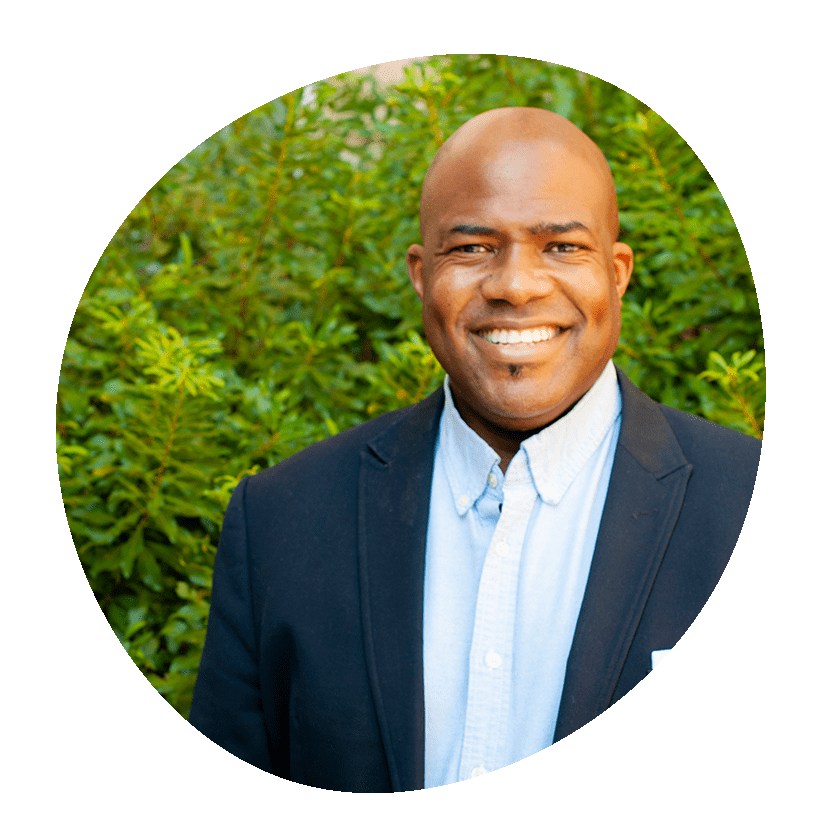Church Revitalization Podcast – Episode 78
A young teenage daughter sat in the back seat of her parents’ car parked in a parking lot, as protestors in the street marched by. They were protesting a recent case in their city that had received national news coverage and were anticipating what the legal outcome of the case might be.
This peaceful protest had all of the realities of a modern-day protest. It had national media following along, banners and signs, chants, music, and a large law enforcement presence. The law enforcement presence was there to both protect the protestors and to prevent things from potentially spiraling out of control. In the middle of watching the crowd walk by, she noticed a close classmate that she’d been in school with for almost ten years walking with the crowd.
Almost on instinct, she threw her seat belt off and jumped out of the car and ran towards her friend. As she got closer, she could see her friends’ face full of tears and anguish. “What’s wrong? Why are you crying?”, the teenager asked. “They killed my brother…my brother is dead…!”
Almost immediately the teenager’s mom had figured out that her daughter had run into the crowd of protestors and she hastily made her way towards the crowd, telling her daughter, “You don’t know these people! We’ve got to leave now. These people are angry looters and mobsters. We don’t agree with their politics and we’ve got to go now!”
“Mom! No, they aren’t. She’s my friend.”
This brief moment perfectly illustrates the quandary that the church today finds itself in.
While there are real discussions to be had about politics and theology, there are people standing along each element of the politics and theology that are currently under debate in our nation.
Watch the video version of this episode on YouTube, or stream the audio below. Subscribe to the podcast and never miss an episode!
WHEN WILL IT BE OVER? That was probably the sentiment for many Pastors and Christians over the last twelve to fifteen months as we’ve dealt with a global pandemic and a summer of racial unrest. Regardless of your political and social position, we can probably agree that our nation is divided and more tragically, the Church is divided.
It could probably be easier for us to stay in our corners, divided and entrenched in our points of view, but I’m not sure that’s what God is calling us to do.
Seeking A Solution
As ministers of reconciliation and peacemakers, we are called to seek a solution for the issues that exist among us.
Enter the Church – stepping into the gaps in our culture and providing a theologically-sound, biblically-accurate, culturally-relevant, and historically-helpful solution for these challenges and issues.
The Church offers an option that heretofore, hasn’t always been embraced. And if it has been embraced, it often gets derailed quickly.
Not only does the church offer the hope of the gospel and the love of Christ, but it also offers the ministry of reconciliation. This reconciliation is not a utopian approach that dismisses history and present-day reality. Similar to a fireman running into a burning building, the church (should) run toward the tension and say (metaphorically speaking), “We’re here to help! The gospel can help!”
What Happens After?
Many Pastors and Church leaders are wondering, what happens after we make ourselves available to be a part of the solution?
There are numerous opportunities to be good neighbors, to preach both expositional and topical sermons, lead discussion groups, serve in community groups, listen to those whose voices haven’t been previously heard, provide resources to marginalized organizations, host seminars and conferences, make space for healthy questions and dialogue, engage in sound curriculum, and intentionally diversify its staff and leadership.
Maybe not all churches are immediately ready to pursue a path toward multi-ethnic ministry (We’ll provide some discussion later about those who are), but all churches should be ready to be advocates in their local communities for biblical justice.
The gospel prioritizes people and the gospel’s role in embracing injustice. Those two realities alone invite all disciples to not be silent about the state of our nation.
Many churches have prayed, and many Pastors have engaged in some book readings or panel discussions. These are important and necessary, yet they are a small step in the direction of systemic change. Good intentions are no longer sufficient for kingdom advancement.
As we prioritize the gospel, we recognize that Jesus and justice go together. Not the justice that embraces hatred, masked as nationalism nor the justice that argues without a path towards healing and resolve. But the justice that prioritizes the gospel and lifts up the love of the father to every single brother and sister in the body of Christ, seen in the Imago Dei. And more so, a profound love and respect for those that are not in the body of Christ. And further, a justice that advocates for both heart change and systemic change towards equity.
The Malphurs Group has moved towards engaging in healthy discussions around race, justice and faith, and simultaneously has incorporated the need to help churches embrace these often-tense topics. Church revitalization involves ensuring that the local church knows how to be aware of the changing world around us, and intentionally adjusting its methods to be impactful for its local community.
A Competitive Advantage
Every church that’s in a community where there is racial and ethnic diversity has a unique opportunity to expand its impact on that local community, by embracing that diversity both from a gospel perspective and from a discipleship perspective. Multiethnic ministry is not a destination, it is the journey. It is the journey towards completely making the gospel fully incarnational and ensuring that every person sees a welcome mat open to the bride of Christ.
Every church that finds themselves in geographical areas that are not as diverse, has the unique opportunity to engage in the ministry of noticing. God calls us to see those who otherwise could be invisible to our comfort zones. This ministry of noticing places a premium on the needs and hurts of people, and as a body collectively, we lament together and move towards healing together.
This approach is the competitive advantage for the church – not to automatically have the answer to every policy issue, every theoretical and theological difference – but to say that because we represent Jesus Christ, Jesus himself would lift up the people that He disagreed with and offer good news to them in the midst of all the bad news. Jesus would practice the ministry of presence. He would see people over politics. He would not run from uncomfortable conversations. He would offer hope, peace, and love. He would resist binary answers and understand dualistic truths that can coexist. That’s our advantage. It’s our on-going opportunity.
Find Race & Racial Reconciliation Resources mentioned in this week’s podcast here.

Christopher Harris has worked in ministry, education, and leadership all of his professional career – now 20+ years in ministry, 15+ years in leadership, and 6 years in education. He currently serves as the Executive Pastor at Crossover Church in Tampa, Florida. In his free time, he enjoys doing nothing! He tries to treat my free time as exactly that – free time. Email Christopher.

